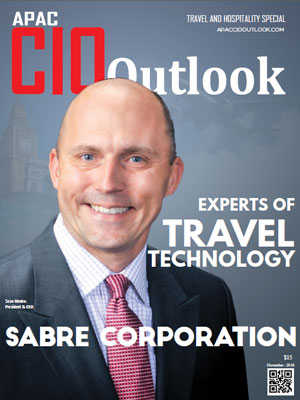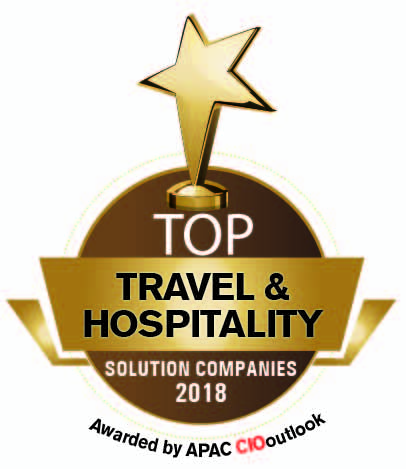Traditional hoteliers now stand at the crux of change. Gone are the days when travelers flocked to hotels during the holiday season in the mad search for accommodation in an unfamiliar place. Today, hospitality as an industry revolves around building an experience that can intimately connect with the customer and offer services conveniently. With the help of communication, companies can proactively build trust and loyalty with the customers. Since the inception of websites as marketing channels to making online reservations available, the travel industry has been an early adopter of every digital technology. With the rise of the competitive business environment, customer expectations are simultaneously increasing. As technology advances, the time is ripe to start implementing the latest strategies and offer out-of-the-box travel experiences to travelers.
As technology permeates across spheres, even the average backpacker seeks to be aware of the best deals across arenas like food, travel, and accommodation options, months before their trip is actually planned. Not just that, the travel and hospitality industry providers tend to offer customers with services that go beyond the website or brochure.
The industry of travel and hospitality comprises of various providers extending unique journey experiences, including a few like hotels, airlines, and rented car services. Extensively, customers in the digital world expect personal experiences that are relevant as well as contextual to them. The travel industry is in search of methods to improve the digital experience for guest-customers and has made space for the unavoidable outburst of mobile devices and other related technologies. Many solution providers today help travel and hospitality firms to adopt best-of-breed technology to gain a competitive edge.
The utilization of technology in the travel industry has seen considerable evolution in the past few years. Companies currently have the liberty to access the real-time data with the help of multiple sources, which can help them in enhancing demand forecasting, guest arrangements, and reserve planning. Technologies such as Artificial Intelligence (AI) and Machine Learning (ML), Augmented Reality (AR) and Virtual Reality (VR), and Data Analytics have achieved an advanced level of superiority and have numerous proven use cases throughout the industries. The hoteliers make use of personalized data, collected from different sources like feedbacks and social media platforms to draw the attention of customers. Customized services for guests can make them feel priceless and ultimately increase customer retention. The developed technologies can transform the traditional approaches to marketing and promotions, customer insights and rendezvous, as well as to raise profitability.
Realizing the influence of vendor firms in enhancing the capabilities of the hospitality sector and making businesses more lucrative, our editorial board conducted a comprehensive study of leading solution providers today. As the number of travel and hospitality solution providers braving the competition to provide services to the industry has filled to the brim, choosing the right partner is a cumbersome task for CTOs, CIOs, and CEOs. APAC CIO Outlook magazine’s editorial team, with the support and guidance from veterans and analysts in the travel and hospitality industry, has selected a list of solution providers that streamline business processes and meet every necessary regulation while staying in tune with changing customer requirements.
We present to you CIO Outlook’s “Top 10 promising Travel and Hospitality Solution Providers - 2018” in the Asia Pacific region today.





























